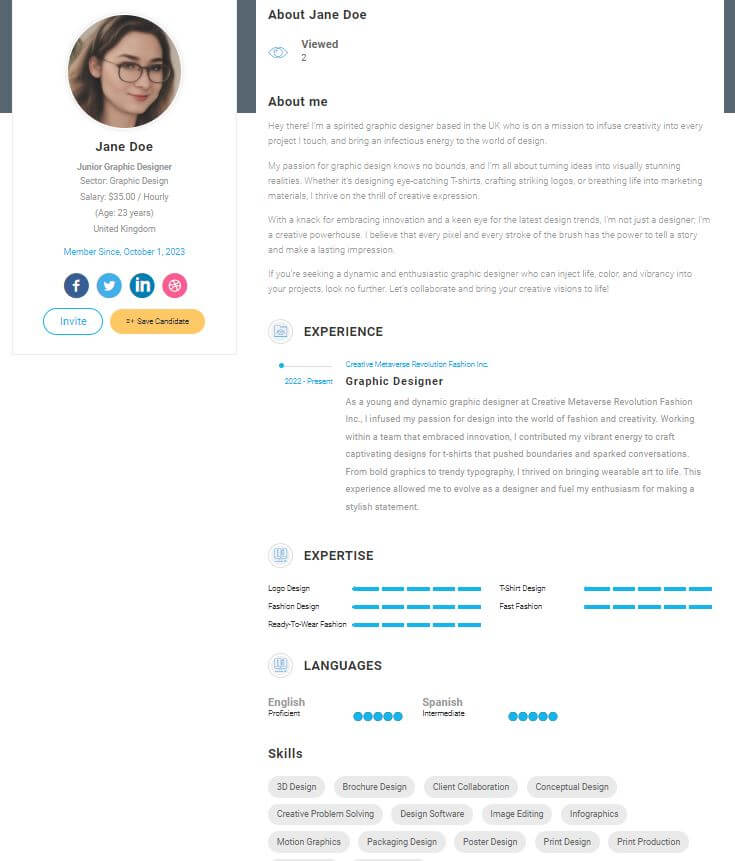Remote work are changing the global landscape of traditional office spaces to work-from-home or work-from-anywhere arrangements. Today, industries that adopt new form of working offers you the flexibility to craft your personal and professional life in ways that weren’t possible before.
No daily commute, no transportation cost, no long traffic jam, remote work enhanced productivity and job satisfaction for employee while offering employers the opportunity to tap into a global talent pool without geographical restrictions.
KEY TAKEAWAYS
- Remote work enhances personal autonomy and work-life balance.
- It contributes to cost savings and environmental conservation.
- Global talent access boosts productivity and job satisfaction.
Benefits of Remote Working: Work-Life Balance and Flexibility

Remote work unlocks a level of work-life balance and flexibility that transforms your daily routine.
You gain control over your work schedule and the freedom to intertwine your job with your personal life constructively.
1. Flexible Work Schedules
With remote work, you can align your work schedule to your personal peak productivity hours.
Whether you’re an early bird or a night owl, you can choose to work when you feel most alert and motivated.
This self-directed approach not only boosts your productivity but also ensures you have time for hobbies and personal development.
2. Reduced Commuting Stress
Eliminating the daily commute saves you hours every week, reducing stress and ushering in a serene start to the day.
You can reallocate this time to priorities like exercise, catching more sleep, or enjoying a leisurely breakfast, which can significantly improve your mental and physical health.
3. Personal Health and Well-Being
Remote jobs grant you the flexibility to schedule short breaks for exercise or relaxation throughout the day.
This practice can lead to better health and increased job satisfaction.
Additionally, crafting a work environment at home that’s conducive to your well-being can have a profound impact on your overall work-life balance.
Benefits of Remote Working: Economic and Environmental Advantages

Remote work brings tangible benefits, financially and environmentally, which can positively influence both your personal life and society as a whole.
4. Cost Savings for Employees and Employers
For You: Embrace a substantial reduction in daily expenditures, such as gas, public transportation costs, and eating out.
This cost saving extends to work attire and dry cleaning expenses too.
For Employers: Expect lower overhead, with fewer resources needed for office space, utilities, and supplies, contributing to overall cost savings.
5. Positive Environmental Impact
Switching to remote work reduces your carbon footprint by decreasing the need to commute, thereby cutting down on greenhouse gas emissions and pollution.
Fewer commuters also mean less congestion and reduced strain on public transportation systems, fostering environmental sustainability.
6. Strengthened Local Communities
Your presence in the local community can lead to increased support for small businesses, enriching the economic health of small towns where you reside.
Remote work can also promote less exposure to illness, benefiting community-wide health.
Benefits of Remote Working: Improved Employee Productivity and Satisfaction
Remote work offers distinct advantages for both you and your employer, by enhancing performance and providing a more satisfying work experience.
7. Enhanced Performance and Fewer Distractions
When you work remotely, your performance can improve due to a reduced number of distractions.
An office environment often presents interruptions that can detract from your focus.
At home, you create a personalized workspace that fosters concentration.
Studies have indicated that higher autonomy from remote work can lead to an upswing in job performance.
- Key Performance Boosters:
- Tailored work setting
- Controlled distractions
- Personal scheduling
8. Strengthened Employee Retention and Diversity
Companies that embrace remote work benefit from higher employee retention rates.
By eliminating the need for physical proximity, your job opportunities expand, welcoming diverse talent from various geographic locations.
Flexible work arrangements are attractive and can lead to a happier, more committed workforce.
- Retention Factors:
- Geographic flexibility
- Increased job satisfaction
- Inclusive hiring practices
9. Motivation and Engagement
Working remotely can heighten your motivation and engagement.
This stems from a stronger sense of control over your work-life balance and the empowerment that comes from managing your own deadlines.
Companies that support a remote workforce observe employees who are more invested in their responsibilities and outcomes.
Benefits of Remote Working: Business Continuity and Access to Global Talent

Remote jobs offer you robust solutions for maintaining business operations during global crises and access to a diverse talent pool that is not limited by geographic boundaries.
10. Adaptation to Global Crises
In the wake of the COVID-19 pandemic, your business’s ability to adapt has been paramount.
Remote work policies have mitigated absenteeism caused by health issues or lockdowns.
The transition to a digital nomad lifestyle ensures your business remains functional, resilient, and prepared for future disruptions.
11. Expanded Talent Pool and Inclusivity
Remote hiring practices give you access to a vast talent pool. This pool is enriched with diversity from various cultural backgrounds.
This includes highly skilled freelancers and professionals with disabilities. They may prefer or require a remote working arrangement.
Your talent acquisition is no longer confined by location. This means that inclusivity and global talent can significantly boost your company’s output and innovation.
Get your 100% Free online resume and get noticed by potential employers. Start out of the crowded space of millions of remote job seekers and find the remote job that you will enjoy and love.

Read Also:
- How to Write a Professional Email At Work (with Examples)
- How to Reply to a Meeting Invitation Request (with Examples)
- 23 Email Etiquette: Professional Communication in Remote Workplace
- How to Do Online Meeting Follow-Up [+12 Follow-Up Meeting Email Templates]
- How to Boost Engagement During Online Meetings During (5 Meeting Engagement Strategies)
Join over 11,000+ achievers who are committed to achieving their career goals!






